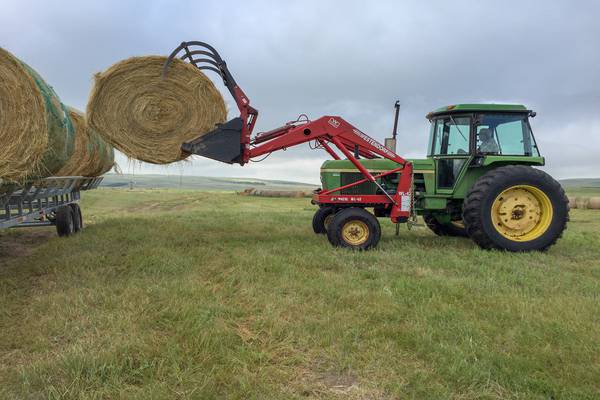Loading Equipment In Agriculture
Drafted by: vijaychourey26@gmail.com
In the realm of modern agriculture, the use of advanced loading equipment has revolutionized farming practices. These heavy-duty machines play a vital role in handling various agricultural tasks, making them more efficient and less labor-intensive. From the initial stages of planting and sowing to the final phase of harvesting, loading equipment has become an indispensable part of the agricultural sector. In this article, we will delve into the significance of loading equipment in agriculture, exploring its different types, benefits, and its impact on farm productivity.
Understanding Loading Equipment In Agriculture
What is Loading Equipment?
Loading equipment, also known as agricultural loaders, are powerful machines designed to handle diverse farm tasks that require the movement of materials, goods, or produce. These machines are equipped with specialized attachments and are capable of handling heavy loads with ease.
The Importance of Loading Equipment in Farming
The adoption of loading equipment has significantly transformed the agricultural landscape, leading to increased productivity and profitability for farmers. These machines have streamlined various processes, reducing the time and effort required for different tasks.
Types Of Loading Equipment
Front-end Loaders
Front-end loaders are one of the most common types of loading equipment used in agriculture. They are mounted on the front of tractors and are ideal for loading and unloading materials, such as fertilizers, feed, and harvested crops.
Skid Steer Loaders
Skid steer loaders are compact, versatile machines widely employed in agriculture. Their ability to turn within their own footprint makes them suitable for confined spaces, and they can handle various tasks like lifting, digging, and pushing.
Telehandlers
Telehandlers, also known as telescopic handlers, are highly adaptable machines equipped with a telescopic boom. They are commonly used for tasks that require lifting and placing materials at heights, making them essential for multi-story farms.
Advantages Of Using Loading Equipment
Increased Efficiency and Time Savings
With loading equipment taking over laborious tasks, farmers can save significant amounts of time and effort. The machines are designed for maximum efficiency, helping accomplish tasks in a fraction of the time it would take with manual labor.
Reduced Labor Dependency
By utilizing loading equipment, farmers can reduce their dependence on manual labor, which is often subject to labor shortages and increased costs. This not only saves money but also ensures uninterrupted farm operations.
Versatility and Multiple Attachments
Loading equipment can be fitted with a wide range of attachments, making them versatile machines capable of performing various tasks throughout the farming process. From plowing and tilling to loading and transporting, these machines can handle it all.
Impact On Agricultural Productivity
Enhanced Crop Yields
With loading equipment efficiently handling farm tasks, farmers can focus on optimizing crop care and management, leading to higher crop yields and improved overall productivity.
Optimal Resource Utilization
Loading equipment ensures the precise application of fertilizers, pesticides, and water, leading to the optimal utilization of resources and reduced wastage.
Streamlined Harvesting Process
During the harvesting season, loading equipment expedites the process of gathering and transporting crops, minimizing post-harvest losses and preserving the quality of the produce.
Maintenance Tips For Loaders
Regular Inspections: Conduct regular inspections to identify and address any issues before they escalate.
Lubrication: Keep all moving parts well-lubricated to ensure smooth operation and prevent premature wear.
Cleaning and Storage: Clean the loader after each use and store it in a dry and secure location to prolong its lifespan.
The Future Of Loading Equipment In Agriculture
As technology continues to advance, loading equipment in agriculture is expected to become even more sophisticated. Innovations such as autonomous loading machines and precision farming technologies will further enhance productivity and sustainability in the agricultural sector.






